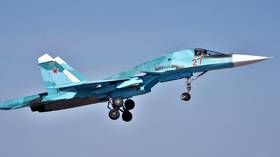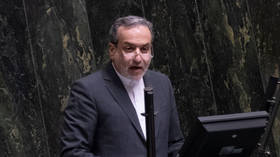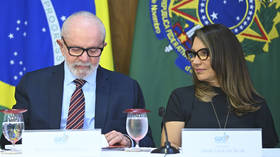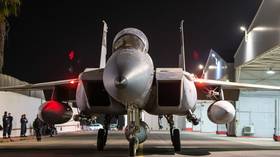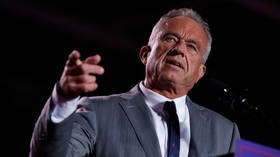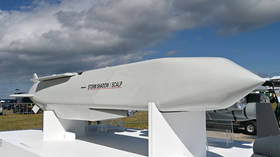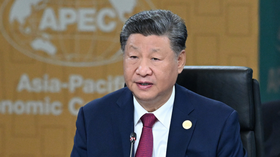US must explain Afghan anti-terror failure, seek intl help to fix it – ex-president Karzai to RT
The dire security situation in Afghanistan is a vivid example and consequence of extremism being used as a geopolitical tool by some states, former Afghan President Hamid Karzai told RT in an exclusive interview ahead of the Moscow Conference on International Security.
“Using extremism as a tool for anybody must not be allowed – any state, no matter who that state is,” Hamid Karzai told RT’s Maria Finoshina.
Specifically, Karzai noted US interference in Afghanistan in the Cold War era as a pretext to wage war against the rival USSR. At that at the time countries, such as the US and Pakistan were “trying to impose radicalism as the best way to fight the Soviet Union.” The policy has led to the current spreading of terror groups, for which the US and Afghanistan are now “paying a heavy price”.
Not a single country can B allowed to use #radicalism as a tool but this is what happened in #Afghanistan. @KarzaiHpic.twitter.com/a95MUR1wzO
— Maria Finoshina (@MFinoshina_RT) 26 апреля 2016 г.
Afghanistan always knew it was a “bad idea” and tried to talk the US out of it, the former president said. “Even then we thought it was a bad idea. Even then we would speak to the United States as a bad idea that they must not provide support to extremist forces.”
While the Washington “did achieve a lot” by its post-9/11 intervention, despite initial successes and “tremendous hope” Afghanistan still “did not see security the way we should have,” Karzai said.
“In one area, which was the most important for us and for the world, and also about which the United States spoke as its primary objective: security and an effective campaign against extremism and terrorism, we did not succeed. And we see the increasing signs, and vulnerability of us to that today,” he said.
I was w/#mujahideen 2 free #Afghanistan from #Soviet,West wanted 2 impose #radicalism thru us 2 hurt USSR. Was bad idea @KarzaiH INT @RT_com
— Maria Finoshina (@MFinoshina_RT) 26 апреля 2016 г.
If the US remains sincerely determined to fight terror in all its forms, and its intentions are true, Karzai believes that Washington should focus on cutting down extremists’ financial sources and training grounds.
“The war against terrorism will not succeed unless we fight it in the sanctuaries, in the training grounds, in the motivational factors, in the financial resources to them. The reason the United States and its allies failed to provide lasting security to Afghanistan and to do away with extremism and with radicalism is because they began to fight it in Afghan villages, where terrorism wasn't there anyway in the first place. They did not go to the sanctuaries, which were in Pakistan. They did not go to the motivational factors, which were in many other places. They did not go to the financial sources of it, which they knew were where they were.”
READ MORE: Former Afghan President: US not interested in winning ‘War on Terror’
“If this war is genuinely against terrorism, if the United States wants to succeed, then we know by now that success will not come unless you go to the sanctuaries, you go to the financial sources and all other factors,” Karzai reiterated.
“And if you cannot do it alone, then go seek help from Russia, China and India,” he added. “In particular, Russia, in our case, because it is close to us, because it has a long history with us, and because it has the means to do it, together with the rest of the world.”
We met @KarzaiH in Moscow ahead of 5th conference on global security.Full interview on Wed on @RT_com.#Taliban#ISISpic.twitter.com/Te3sDcZmGP
— Maria Finoshina (@MFinoshina_RT) 26 апреля 2016 г.
The US says it has “done everything right” in Afghanistan, admits some shortcomings, which Karzai said is not enough for a satisfactory explanation of Washington’s failure.
“The United States must explain itself as to why things went wrong,” he said. “Therefore, my suggestion is that the US begins to seek help, or, if it is not doing that, it must explain itself to us and to the rest of the world.”


